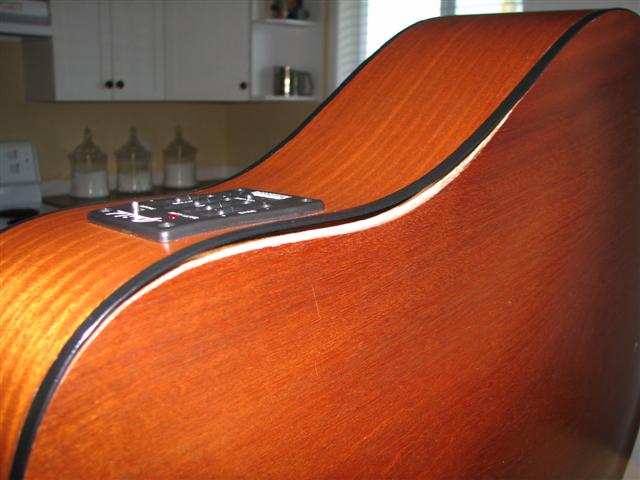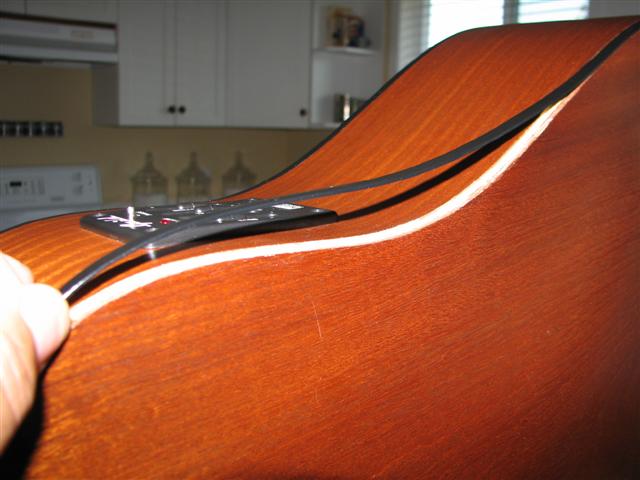I have a Martin D-35 with the white binding on it. Almost all of the binding came loose within a few weeks (neck binding, top and back binding)..
I called Martin and they said it would be covered under warranty and that it was a common problem. I didnt want to ship my guitar and chance having it further damaged by a freight carrier and kept putting it off.
When I went through the flat top luthier school with Frank Finnocchio (also a Martin Factory Repair center) he suggested the plain old white Elmer's glue and then to tape it in place with blue tape as though I was installing binding on a new guitar. That is exactly what I did and it worked like a dream. I cleaned up the squeeze out while I was installing it and the little that was left wiped right off after the tape was removed the next day. I would definitely reccomend this repair method to you as well. In my repair you cant even feel a line where the re-glue was made.
By the way, after doing some research I did find that it is a fault of the plastic binding (in this case the binding is PVC) and it shrinks over time creating stress on the glue joint. I no longer use plastic bindings unless a customer specifically requests it.
|




 . Still, I wouldn't count on warranty from them on this one.
. Still, I wouldn't count on warranty from them on this one.